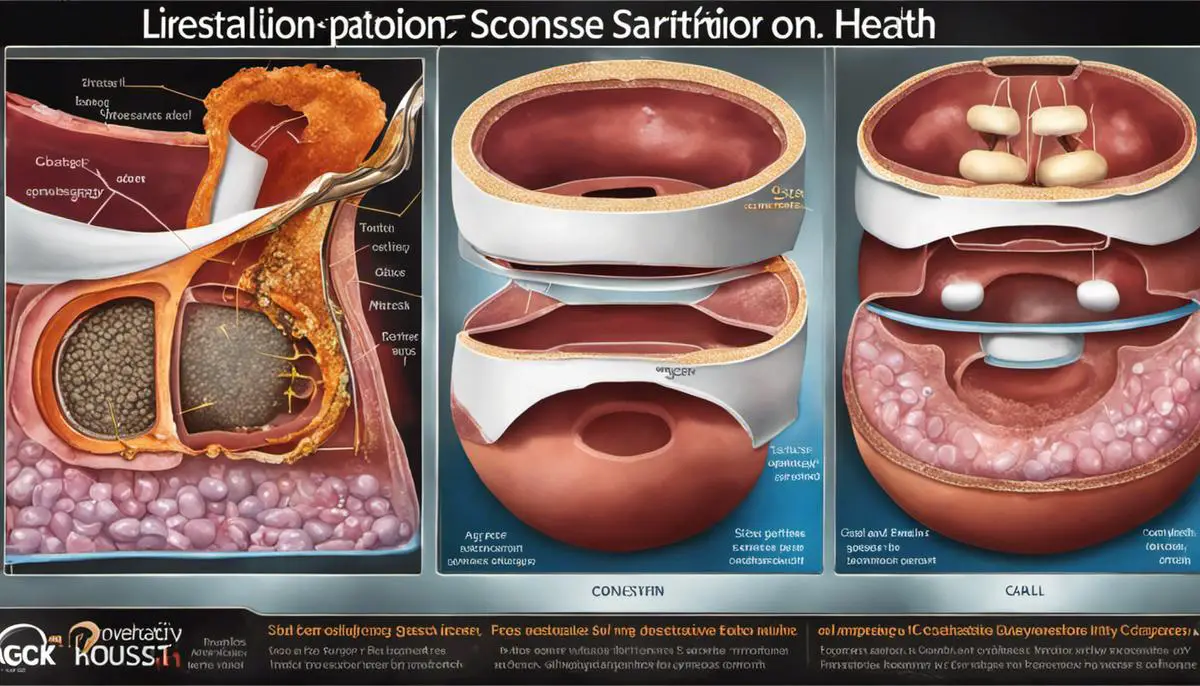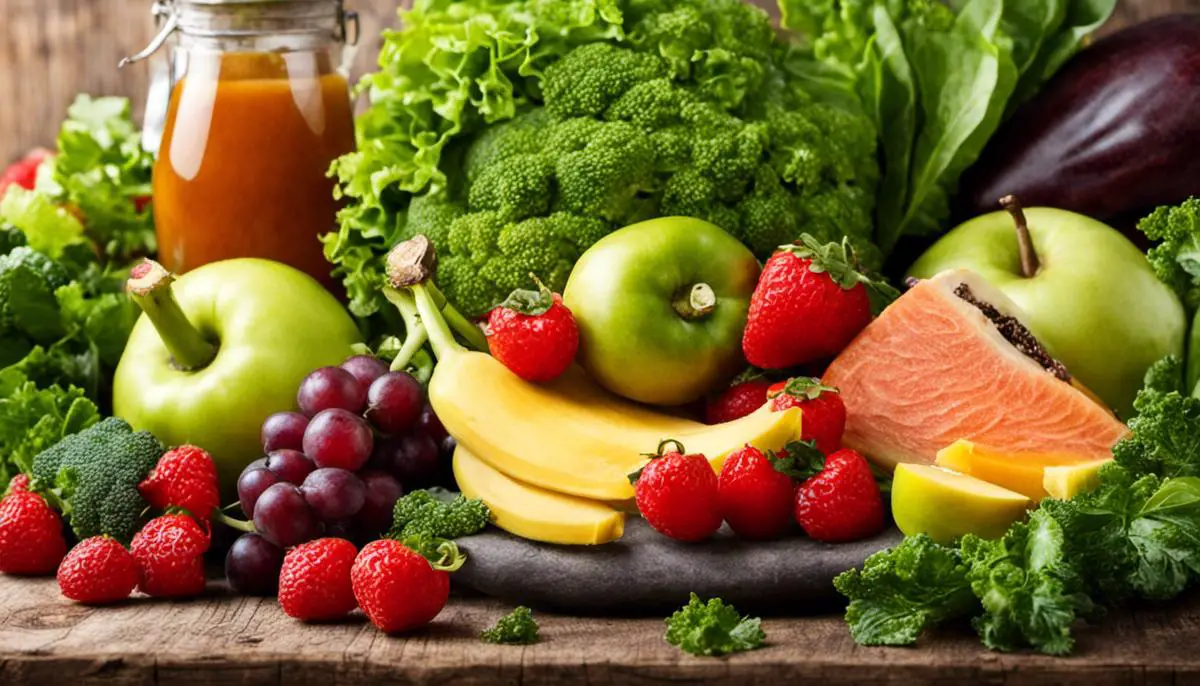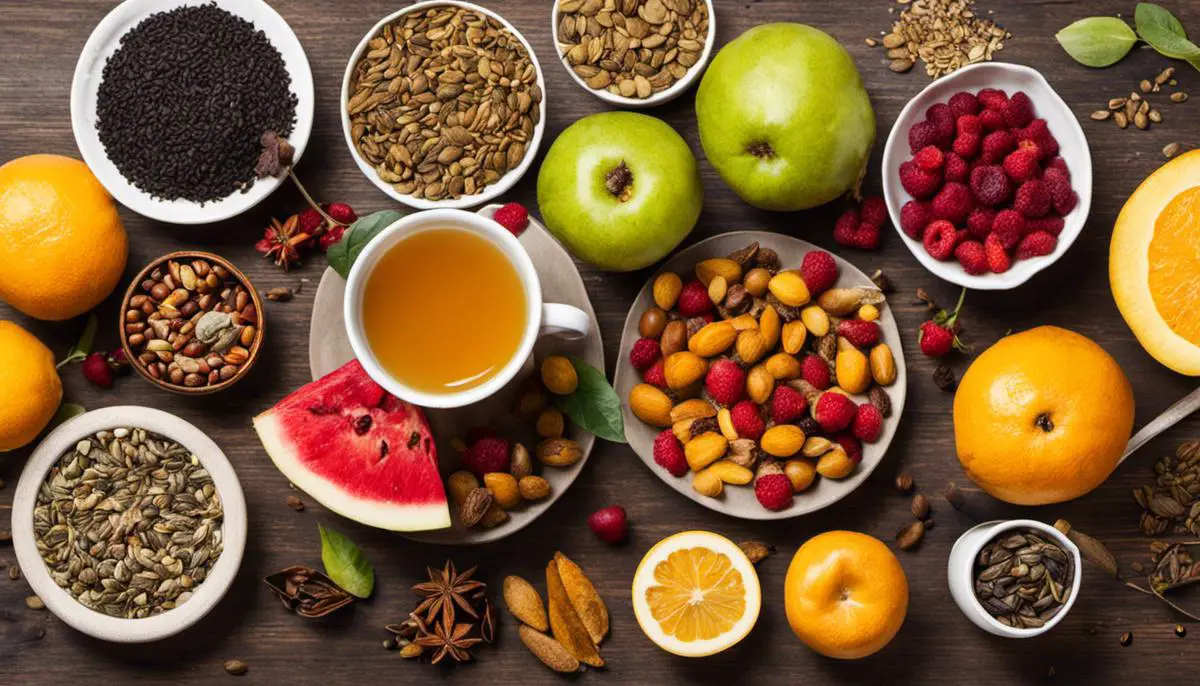Constipation is a common issue that affects countless individuals worldwide. Though it may seem like a simple annoyance, it can significantly impact your daily life and overall digestive health. Chronic constipation can not only make you uncomfortable, but it also signifies that your body is not eliminating waste as it should. In this regard, it is crucial to get an in-depth understanding of constipation, such as its causes, symptoms, and associated health issues. Additionally, lifestyle habits often significantly influence the onset and severity of constipation. As such, we also explore diet and lifestyle changes that can help manage and prevent constipation. Finally, we delve into natural remedies, offering a wealth of solutions from your pantry, with items that can come to your rescue and provide much-needed relief from this uncomfortable condition.
Understanding Constipation
Understanding Constipation: An Overview
Constipation is a common digestive disorder that involves having fewer than three bowel movements per week. When bowel movements do occur, they may be difficult to pass or appear hard, dry, or lumpy. Constipation can happen for several reasons, and understanding its cause is crucial to managing this health condition properly.
Why Does Constipation Occur?
The fundamental cause of constipation is the slower movement of stool through the digestive tract. This slow pace results in the colon absorbing too much water from the feces, making it hard and dry. Factors that can contribute to this slowdown include lack of physical activity, insufficient water or fiber intake, changes in routine or lifestyle, ignoring the urge to have a bowel movement, specific medications, and health conditions such as diabetes, neurological disorders, or issues with the colon or rectum.
Signs and Symptoms of Constipation
The symptoms of constipation can vary widely from one person to another but typically include having fewer than three bowel movements a week, straining during defecation, feeling like not all stool has passed, or experiencing a sense of blockage in the rectum. Symptoms can be occasional, lasting a few days, or chronic, persisting for several weeks or longer.
Negative Effects on Digestive Health
Not only can constipation be uncomfortable or even painful, it can also lead to complications if left unchecked. Persistent straining during bowel movements can cause hemorrhoids and anal fissures. In severe cases, a hard mass of stool, called a fecal impaction, can accumulate in the rectum and require removal. Chronic constipation can also lead to fecal incontinence or the inability to control bowel movements. Long-term constipation can disrupt the balance of your digestive system and exacerbate existing health conditions.
Tackling Constipation: Lifestyle Changes and Dietary Adjustments
Improving lifestyle and dietary habits is often the first step to alleviate constipation. Incorporate more fiber into your diet through fruits, vegetables, and whole grains, drink plenty of water, and engage in regular physical exercise. It’s also important to heed the call to go when it comes, as ignoring it can exacerbate constipation. If dietary changes and lifestyle modifications are inadequate or if you’re experiencing severe symptoms, seek medical advice for further investigation and treatment. Understanding constipation fully is a critical part of managing it effectively and maintaining good digestive health.

Diet and Lifestyle Changes
Dietary Modifications for Constipation Relief
Certain changes to your diet can significantly help to alleviate constipation. One of the most effective ways is to increase your dietary fiber intake. Fiber adds bulk to your stool and can help it pass more easily through your digestive system. Foods rich in fiber include fruits, vegetables, whole grains, and beans. Incorporating more of these foods into your everyday meals can help to keep your digestive system regular.
Staying Hydrated
Another crucial aspect of preventing and treating constipation is maintaining adequate hydration. Dehydration can lead to hardened stools, making them more difficult to pass. Try to drink at least eight 8-ounce glasses of water per day. Avoid drinks with caffeine or alcohol, as they can dehydrate you. Drinking warm liquids in the morning, such as hot water or tea, can also help stimulate bowel movements.
Regular Exercise
In addition to dietary changes, regular physical activity is also beneficial in preventing constipation. Exercise helps to stimulate the natural contraction of intestinal muscles, aiding in the movement of stool through your intestines. Regular exercise also helps to reduce the time it takes food to travel through the large intestine, which can also help keep your stools softer and easier to pass. Try to incorporate moderate activities like walking, swimming, or aerobics into your routine for at least 30 minutes most days of the week.
Incorporating High-Fiber Foods
High-fiber foods contribute considerably to preventing and relieving constipation. Incorporating foods like bran cereal, lentils, almonds, barley, and fruits such as raspberries, pears, apples, and bananas into your diet can greatly improve your bowel regularity. Remember to introduce these foods gradually to prevent gas and bloating.
Healthy Bowel Habits
Establishing healthy bowel habits can also alleviate constipation. Don’t ignore the urge to go. The longer you delay when the urge to have a bowel movement strikes, the more water gets absorbed from stool and the harder it becomes.
By implementing these changes in your everyday life, you can help alleviate constipation issues. Remember, it’s essential to be patient as these changes may take time to bring about a noticeable improvement. It may also be beneficial to reach out to a healthcare professional for a personalized plan if these general remedies don’t provide relief.

Natural Remedies
Herbal Teas for Constipation
Several types of herbal teas have been reported to possess digestive-stimulating properties and can help alleviate constipation. Senna tea is one such popular herbal remedy. Senna contains compounds called sennosides which are believed to stimulate the nerves in your gut and speed up bowel movements. Another beneficial tea is Peppermint tea, which is known to relax the muscles of the gastrointestinal system, thus encouraging smoother, spasms-free bowel movements.
High-fiber Fruits
Fruits high in fiber can significantly help reduce the chances of constipation. Pears, apples, and oranges are all high in dietary fiber and can be a useful aid in promoting regular bowel function. Prunes are frequently referred to as a “natural laxative” because they contain high amounts of fiber, as well a natural sugar called sorbitol that can loosen the stool. Adequate fluid intake along with these high-fiber fruits is key for them to be effective.
Probiotics for Gut Health
Probiotics are living organisms that help balance the gut bacteria, promoting a healthy digestive system. Specific probiotic strains such as Bifidobacterium and Lactobacillus are commonly recommended for relieving constipation. Yogurt, sauerkraut, kimchi, and other fermented foods are excellent sources of these beneficial bacteria.
Flaxseeds and Chia Seeds
Flaxseeds and chia seeds are high in fiber and can help soften stools, making them easier to pass. These seeds also contain a type of omega-3 fatty acid called alpha-linolenic acid, which has been proven to have a positive impact on digestive health. They can be easily incorporated into your diet by adding them to cereal, yogurt, or salads.
Hydration
Water is crucial for preventing and treating constipation. When you’re not drinking enough fluids, your body may draw water from your stool to maintain hydration, leading the stool to become hard and difficult to pass. Therefore, regular intake of water helps keep your bowel movements regular.
Exercise
Regular physical activity is another natural method to stimulate your intestines and promote regular bowel movements. Walking, jogging, swimming, or even yoga can encourage normal bowel function.
Limiting Processed Foods
Processed foods are often high in fats and low in fiber and can contribute to constipation. Replacing these with whole, natural foods can help maintain regular bowel function.
Fennel and Castor Oil
Fennel and castor oil have been used traditionally to treat constipation. Fennel can stimulate digestion and relieve bloating while castor oil, when consumed orally, can stimulate the small and large intestines and help ease elimination.
Remember, while these remedies may help remedy constipation, it is always advisable to consult with your healthcare provider if symptoms persist or worsen.

By understanding the complexities of constipation and implementing positive dietary changes, we can regain control of our digestive health. High-fiber foods, hydration, and regular exercise can significantly contribute to alleviating constipation. Similarly, numerous natural remedies, such as herbal teas, certain fruits, and probiotics, can offer much-needed relief without adverse side effects. Remember, the key to effective treatment lies not only with isolated remedies but also in leveraging a holistic approach towards dietary and lifestyle modifications. Harness the power of your kitchen staples and cultivate healthier habits to keep constipation at bay and lead a healthier, more comfortable life.
